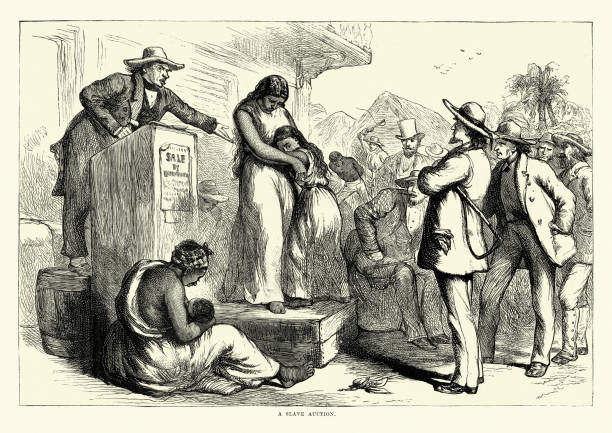Untold Stories: The 20 Fascinating Black History Facts
Discover the untold narratives and hidden triumphs of Black history with these 20 rarely known and extraordinary facts. From trailblazing pioneers and influential movements to remarkable achievements and courageous acts, this article unveils a captivating tapestry that challenges conventional narratives. Join us on a journey through time as we shed light on empowering legacies and remarkable stories that have shaped the course of history. Prepare to be inspired and enlightened by these remarkable insights into the richness and resilience of Black history.
#1 Buffalo Soldiers: African American Heroes in the American West
The Buffalo Soldiers were a remarkable group of African American soldiers who made significant contributions to the Western frontier following the Civil War. These courageous men played a pivotal role in the settlement and safeguarding of the American West, leaving an indelible mark on the region’s history.
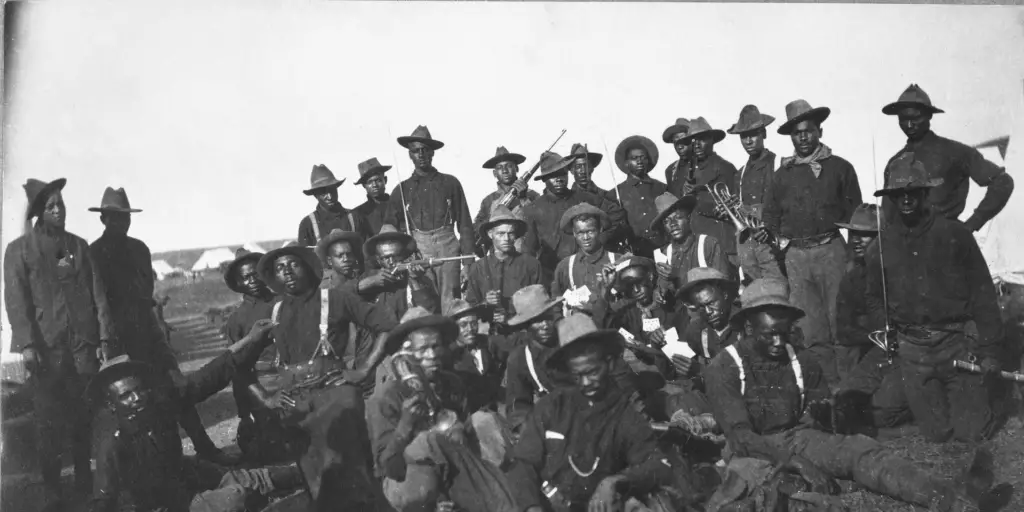
Formed in 1866, the Buffalo Soldiers were originally assigned to the segregated regiments of the United States Army. Despite facing racial discrimination and prejudice, they demonstrated unwavering dedication, bravery, and discipline in their duties. These soldiers were tasked with various responsibilities, including protecting settlers, building forts and infrastructure, and engaging in military campaigns against Native American tribes who resisted the encroachment of white settlers.
#2 Bessie Coleman: The Trailblazing African American Female Pilot
Bessie Coleman holds the esteemed distinction of being the first licensed African American female pilot. In a remarkable achievement that preceded the famous Tuskegee Airmen for nearly three decades, Coleman earned her pilot’s license in 1921. Her groundbreaking journey serves as an inspiration and a testament to her unwavering determination to break barriers and pursue her dreams.
Born in 1892 in Atlanta, Texas, Bessie Coleman faced numerous obstacles in her pursuit of aviation. Denied entry to flight schools in the United States due to both her gender and race, she ventured to France to obtain her pilot’s license. Overcoming significant challenges, Coleman acquired her license from the Fédération Aéronautique Internationale, marking a significant milestone for African American women in the realm of aviation.

Pilot Bessie Coleman receiving a bouquet from Captain Edison C McVey in his uniform as Aeronautical Instructor of the UAL at Curtiss Field, Garden City, Long Island.
Upon her return to the United States, Bessie Coleman became a renowned aviator, captivating audiences with her daring aerial displays and stunts. She aimed to inspire young African Americans, particularly women, to believe in themselves and strive for greatness. Tragically, her career was cut short when she lost her life in a plane crash during a rehearsal in 1926.
#3 The “Double V” Campaign: Fighting Racism Abroad and at Home
During World War II, the African American community rallied behind the “Double V” campaign, which became a powerful symbol of their struggle for equality and justice. The campaign’s central message was twofold: victory against fascism abroad and victory against racism at home. It represented a call to arms against both external and internal enemies, demanding not only a triumph over the Axis powers but also an end to racial discrimination and segregation in the United States.
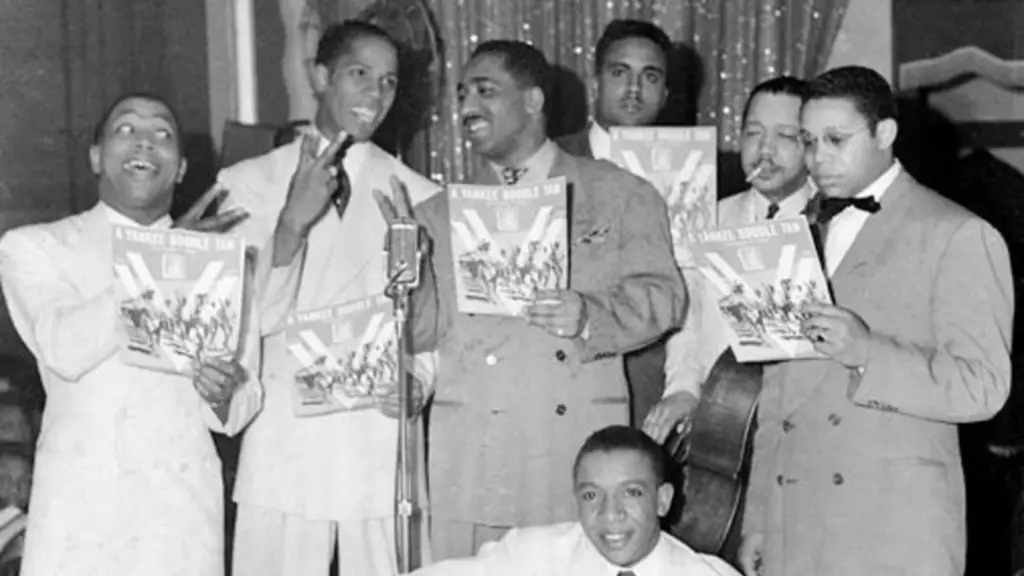
Amidst the fight against the tyranny of fascism in Europe and Asia, African Americans recognized the need to address the deeply entrenched racism and inequality within their nation. The “Double V” campaign became a unifying force, as it resonated with African Americans who sought to contribute to the war effort while simultaneously fighting for their civil rights. It emphasized that the struggle against racial injustice was intrinsically linked to the fight for global freedom and democracy.
The campaign gained momentum through various means, including the publication of newspapers like the Pittsburgh Courier, which actively promoted the “Double V” message. African American soldiers, who fought bravely on the front lines, returned home to confront the harsh reality of racial segregation and discrimination. The “Double V” campaign gave them a platform to demand equal treatment and challenge the systemic racism prevalent in American society.
#4 Madam C.J. Walker
Madam C.J. Walker stands as a trailblazing figure in American history, earning the distinction of being the first self-made female millionaire in the United States. As an African American entrepreneur, she achieved remarkable success in the early 20th century by establishing a thriving beauty and haircare business. Through her determination, innovation, and dedication, Madam Walker not only transformed her own life but also became an inspiration and advocate for other women.
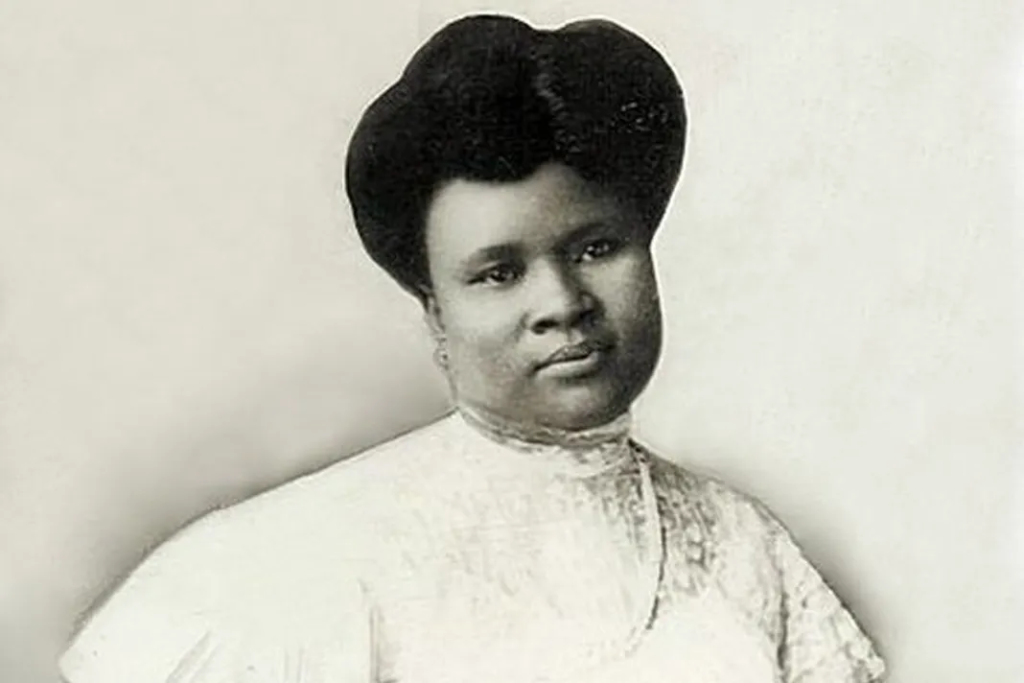
Born Sarah Breedlove in 1867, Madam C.J. Walker faced numerous challenges as an African American woman during a time of racial and gender inequality. However, her entrepreneurial spirit propelled her forward. Recognizing a need for haircare products tailored to the specific needs of African American women, she developed her line of hair products and cosmetics. Through savvy marketing strategies, including door-to-door sales and demonstrations, she rapidly expanded her customer base and built a successful enterprise.

#5 The German Coast Uprising
The German Coast Uprising stands as the largest slave rebellion in American history, a pivotal event that unfolded in 1811 in Louisiana. Led by an enslaved African named Charles Deslondes, this courageous rebellion involved approximately 500 enslaved individuals who sought to liberate themselves from the brutal chains of bondage. The uprising serves as a testament to the indomitable spirit and relentless pursuit of freedom by those who endured the horrors of slavery.

Motivated by their desire for liberty and inspired by the ideals of the Haitian Revolution, the rebels embarked on a daring and organized revolt against their oppressors. Armed with whatever weapons they could acquire, the rebels marched from plantation to plantation, burning buildings and confronting white plantation owners and overseers. However, the rebellion was eventually suppressed by the overwhelming force of the military and local militias, leading to a devastating loss for the enslaved population.
Although the German Coast Uprising did not achieve its immediate objective of freedom, its impact reverberated throughout the country, inspiring future generations in the fight against slavery and oppression. The rebellion exposed the deep-rooted discontent and resistance that existed within the enslaved population and highlighted the determination of those who sought to break the chains of bondage.
#6 Negro Motorist Green Book
The Negro Motorist Green Book holds a significant place in history as a travel guide that was published from 1936 to 1966. During a time of racial segregation and discrimination, this invaluable resource served African American travelers by providing information on safe places to eat, sleep, and visit. The Green Book became an indispensable tool for navigating a deeply segregated society and ensuring a safer and more comfortable travel experience.

Created by Victor H. Green, a postal worker from Harlem, the Green Book emerged in response to the challenges faced by African American travelers during the Jim Crow era. The guide listed businesses, accommodations, and establishments that welcomed African American patrons, providing vital information about places that were safe and hospitable. As racial discrimination was widespread and many establishments denied service to African Americans, the Green Book played a crucial role in ensuring that travelers could find establishments that would serve them, reducing the risks and difficulties they faced on the road.
#7 The Black Panther Party: Armed Resistance and Community Programs
The Black Panther Party, established in 1966, emerged as a prominent civil rights organization that sought to combat police brutality and racial inequality through a combination of armed self-defense and community initiatives. Founded by Huey P. Newton and Bobby Seale, the party became a powerful voice for African Americans in the fight for justice and equality during a tumultuous period in American history.
The Black Panther Party recognized the urgent need to protect African American communities from the systemic violence perpetrated by law enforcement. They employed the strategy of armed self-defense to monitor police behavior and respond to instances of brutality. By openly carrying firearms and observing police interactions, they aimed to raise awareness of police misconduct and challenge the unjust treatment of African Americans. Their visible presence and commitment to self-defense sent a message that the community would no longer tolerate oppressive actions from law enforcement.

In addition to their focus on self-defense, the Black Panther Party established various community programs to address the social and economic needs of African American communities. They implemented free breakfast programs for children, recognizing that proper nutrition was vital for educational success. The party also established medical clinics and legal aid services, ensuring that community members had access to healthcare and legal support. These community initiatives aimed to uplift and empower African American communities, providing tangible assistance in the face of social and economic challenges.
#8 Trailblazing African American Poet
Phillis Wheatley, a remarkable African girl who was enslaved during the 18th century, achieved a historic milestone by becoming the first African American and one of the first women to publish a book of poetry in 1773. In an era marked by prevalent racism and discrimination, her literary achievements defied prevailing notions about the intellectual capacity of enslaved Africans. Through her words, Wheatley not only showcased her poetic talent but also challenged the deeply ingrained prejudices of her time.

Born in Senegal and brought to Boston, Massachusetts, as a young girl, Phillis Wheatley demonstrated exceptional intellect and a passion for learning. Despite being enslaved, she gained access to education and flourished under the guidance of her progressive owners. Wheatley’s poetry, infused with themes of faith, freedom, and the human condition, captivated readers and garnered recognition not only in America but also in Europe. Her work resonated deeply with readers, forcing them to reconsider their preconceived notions about the intellectual capabilities of African slaves.
#9 African American Heroes of World War I
The 369th Infantry Regiment, widely known as the Harlem Hellfighters, made an indelible mark during World War I. Comprised entirely of African American soldiers, this remarkable unit served with distinction, spending more time in combat than any other American unit. Their unwavering courage, resilience, and contributions to the war effort earned them well-deserved recognition and respect.

The Harlem Hellfighters faced significant challenges and discrimination within the United States, but once deployed to Europe, they showcased their valor and tenacity on the battlefield. Assigned to the French army due to racial segregation within the American military, the 369th Infantry Regiment fearlessly fought alongside their French allies. Their combat prowess and determination led them to spend an astonishing 191 days on the front lines, longer than any other American unit. The Harlem Hellfighters were recognized for their exceptional bravery and received numerous honors, including the prestigious French Croix de Guerre for their gallant actions in combat.
#10 First African American Woman in Space
Mae Jemison made history in 1992 by becoming the first African American woman to travel to space. As a mission specialist aboard the Space Shuttle Endeavour, Jemison’s groundbreaking journey not only shattered barriers but also served as an inspiration to countless individuals, especially women, and people of color, who aspired to reach for the stars. Born in Alabama in 1956, Jemison grew up with a passion for science and a determination to pursue her dreams despite societal challenges and stereotypes.

After earning degrees in chemical engineering and African and African-American studies, she went on to obtain her medical degree. Jemison’s diverse background, coupled with her exceptional intellect and drive, set the stage for her remarkable career as an astronaut. In September 1992, Jemison’s dream of reaching space became a reality as she embarked on the STS-47 mission aboard the Space Shuttle Endeavour. During her eight-day journey, she conducted experiments related to bone cell research and demonstrated the incredible capabilities of women in the field of space exploration.
#11 The Great Migration
The Great Migration represents a monumental historical phenomenon that occurred between 1916 and 1970, involving the mass migration of millions of African Americans from the rural South to the urban North and West. Driven by a desire to escape racial oppression, economic hardships, and limited opportunities in the South, African Americans sought a better life and brighter prospects in the bustling cities of the North and West. This transformative movement had a profound impact on the demographic, cultural, and political landscape of the United States.
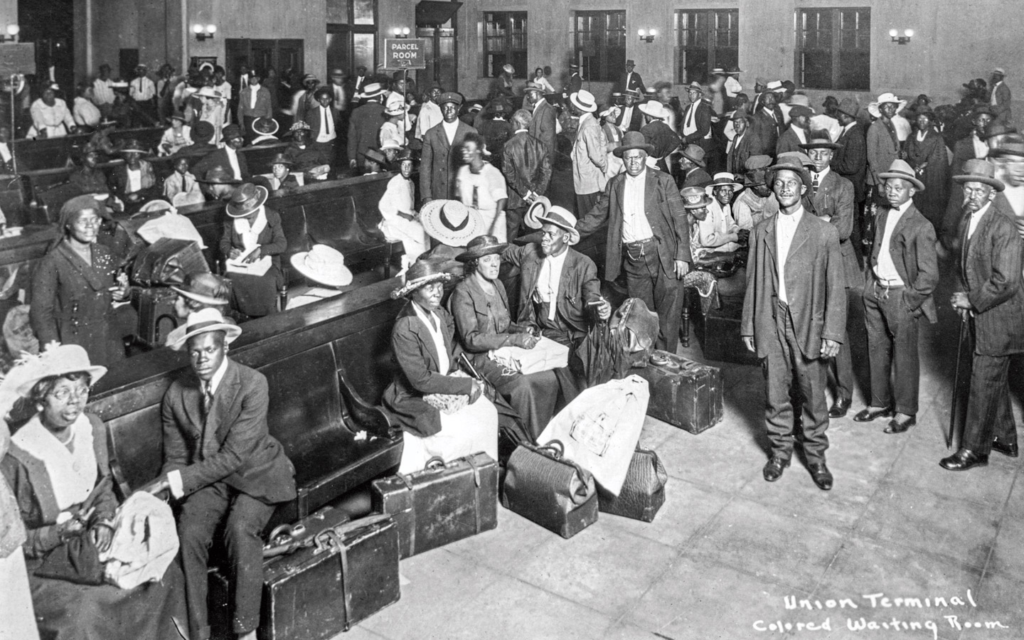
The Great Migration marked a significant demographic shift as African Americans sought new opportunities and freedom in the urban centers of the North and West. This mass exodus from the South led to rapid growth and the establishment of vibrant African American communities in cities such as Chicago, New York, Detroit, and Los Angeles. The migration not only increased the overall population of these cities but also contributed to a rich cultural exchange, giving rise to the Harlem Renaissance and other artistic and intellectual movements that celebrated African American heritage and creativity.
#12 The “Black Power Salute” at the 1968 Olympics
The 1968 Summer Olympics held in Mexico City became a stage for a historic and powerful moment known as the “Black Power Salute.” During the medal ceremony for the 200-meter race, African American athletes Tommie Smith and John Carlos took a stand against racial inequality by raising their fists while the national anthem played. This act of protest captured global attention and became an iconic symbol of the civil rights movement.

At the 1968 Olympics, American athletes Tommie Smith and John Carlos protested on the podium against the ongoing civil rights issues in the USA at the time. Australia’s Peter Norman, left, wore an Olympic Project for Human Rights badge in support of Smith and Carlos.
Smith and Carlos used the platform of the Olympics to bring attention to the social and political struggles faced by African Americans in the United States. Their raised fists, draped in black gloves, symbolized unity, strength, and resistance against racial injustice. The gesture represented a powerful call for equality and human rights at a time when racial discrimination and systemic oppression were prevalent. However, their protest faced backlash and controversy, with many criticizing their actions as inappropriate for a sporting event. Despite the controversy, Smith and Carlos’ courageous act sparked important conversations about race, equality, and the intersection of sports and activism.
#13 The Negro League Baseball
The Negro League Baseball, which operated from 1920 to 1960, holds a significant place in American sports history. During an era of racial segregation, this alternative professional baseball league provided African American players with the opportunity to showcase their talent and passion for the game. Barred from playing in Major League Baseball due to discriminatory practices, these talented athletes formed their teams and created a vibrant and competitive league that showcased exceptional skill and athleticism.

The Negro League Baseball emerged as a response to the racial barriers that limited African American players from participating in the established professional leagues. The league attracted top-tier players, including legends such as Satchel Paige, Josh Gibson, and Cool Papa Bell, who dazzled audiences with their remarkable abilities on the field. The games were filled with excitement, as fans flocked to witness the incredible talent and competitive spirit displayed by these gifted athletes. The Negro League Baseball became a symbol of resilience, determination, and the quest for equality in the face of racial injustice.
While the Negro League Baseball ceased operations in 1960, its impact on the sport and society is immeasurable. The league not only provided a platform for African American players to showcase their skills but also contributed to the breaking down of racial barriers in professional sports. The achievements of Negro League players, coupled with the efforts of civil rights activists and the changing societal attitudes, ultimately led to the integration of Major League Baseball.
#14 Jamaican Nurse’s Heroic Care During the Crimean War
Mary Seacole, a Jamaican-born nurse, played a crucial role in providing care to wounded soldiers during the Crimean War in the 19th century. Despite facing racial discrimination and limited opportunities, Seacole’s determination and compassion led her to establish the British Hotel, a haven for injured soldiers in need of medical treatment and comfort. Born in 1805 in Jamaica, Mary Seacole was raised in a family of mixed race and learned about herbal medicine and nursing from her mother. When the Crimean War broke out in 1853, she was determined to contribute to the relief efforts but faced rejection from the British War Office due to her gender and race.

Undeterred, Seacole funded her journey to Crimea and set up the British Hotel near the war zone. There, she provided essential care and medical assistance to soldiers, often risking her safety to tend to the wounded on the battlefield. Seacole’s British Hotel became a sanctuary for soldiers who found solace in her compassionate and dedicated care. Her expertise in herbal medicine and her nurturing presence greatly improved the soldiers’ well-being and comfort. Despite the racial discrimination she faced, Seacole’s determination to serve others and make a difference earned her the respect and admiration of those she helped.
#15 The Montgomery Bus Boycott

The Montgomery Bus Boycott, which commenced in 1955, stands as a defining moment in the Civil Rights Movement. The boycott was triggered by the courageous act of Rosa Parks, an African American woman who, on December 1, 1955, refused to give up her seat on a Montgomery bus to a white passenger. Her defiance against segregation laws ignited a spark that would fuel a year-long protest against racial discrimination in public transportation. Parks’ refusal to surrender her seat set in motion a powerful wave of resistance. African Americans in Montgomery, led by civil rights activists such as Martin Luther King Jr., organized a massive boycott of the city’s bus system.

For over a year, African Americans chose to walk, carpool, or find alternative means of transportation rather than ride segregated buses. The boycott was a testament to the determination and unity of the African American community in their fight for equality and justice. The Montgomery Bus Boycott exerted tremendous pressure on the city’s authorities and the bus company. It received national attention, bringing the issue of racial segregation to the forefront of public consciousness. The boycott’s impact was profound, culminating in a Supreme Court ruling in 1956 that declared segregated buses unconstitutional.
#16 From Rags to Riches as the ‘Richest Colored Girl in the World
Sarah Rector, an African American girl, achieved remarkable fame and wealth in the early 20th century, earning the title of the “Richest Colored Girl in the World.” Her journey began when, at the age of 10, she became the beneficiary of an oil-rich land allotment in Oklahoma, a result of the Dawes Act of 1887. The discovery of oil on her land propelled her into a life of extraordinary wealth and opportunity.

As headlines of her immense wealth spread, she faced both admiration and exploitation. While her wealth brought her financial stability and access to education, it also exposed her to individuals seeking to take advantage of her fortune.
#17 Barack Obama Makes History as First African American President
In 2008, the United States witnessed a momentous occasion as Barack Obama shattered the racial barrier and became the first African American to be elected President. This groundbreaking achievement marked a historic milestone not only for Obama personally but also for the nation as a whole. His presidency represented a powerful symbol of progress, inclusivity, and the potential for change. Barack Obama’s election as President resonated deeply with millions of Americans who saw it as a transformative moment in the country’s history. It symbolized the advancement of racial equality and the breaking down of longstanding barriers.

Obama’s campaign was fueled by a message of hope, unity, and the promise of a more inclusive and prosperous future. His victory reflected the immense progress the United States had made in terms of racial tolerance and demonstrated the nation’s readiness for transformative leadership. As the 44th President of the United States, Barack Obama’s presidency was marked by significant milestones, including the passage of the Affordable Care Act, efforts to address climate change, and the pursuit of diplomacy on the international stage.
#18 Unethical Experiment on African American Men
The Tuskegee Study of Untreated Syphilis in the Negro Male, conducted from 1932 to 1972, stands as one of the most infamous and ethically controversial medical studies in American history. The study, initiated by the United States Public Health Service, aimed to observe the natural progression of untreated syphilis in African American men, but its methods and implications were deeply problematic. Hundreds of African American men from rural Alabama were recruited for the study, with many falsely led to believe they were receiving free medical treatment for their ailments. However, the participants were intentionally left untreated for syphilis, even when penicillin, a highly effective treatment, became widely available.
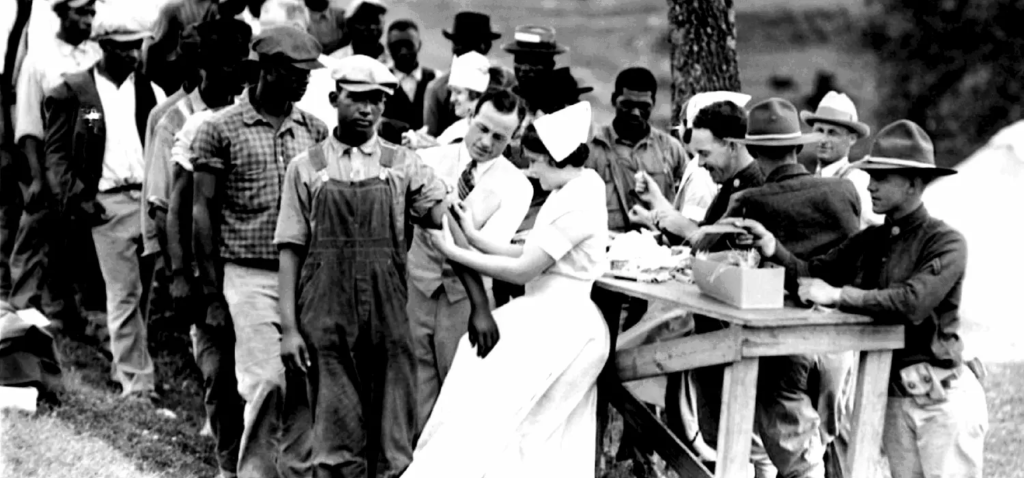
This unethical practice, which deprived the participants of proper medical care and knowingly allowed the disease to progress, inflicted significant harm on vulnerable individuals and their families. The Tuskegee Study sparked national outrage and led to sweeping changes in medical research regulations. The study’s ethical violations and the resulting public outcry brought attention to the need for informed consent, patient autonomy, and safeguards to protect participants in research studies. In 1972, the study was finally exposed and brought to an end, leading to widespread reforms in medical ethics and the establishment of stringent guidelines to protect the rights and well-being of human subjects in scientific research.
#19 The Negro Digest: African American Magazine
The Negro Digest, later renamed Black World, holds a significant place in African American publishing history as the first widely successful monthly magazine tailored specifically for an African American readership. Founded in 1942 by John H. Johnson, the magazine served as a platform to amplify the voices and perspectives of African Americans during a time when their stories were often marginalized or overlooked. Under Johnson’s visionary leadership, the Negro Digest became a powerful medium for cultural expression, intellectual discourse, and social commentary.

It featured a wide range of content, including essays, articles, poetry, and fiction, highlighting the diverse experiences and achievements of African Americans across various fields. The magazine provided a much-needed space for African American writers, scholars, and artists to share their perspectives and contribute to the ongoing cultural and social movements of the time. As the magazine gained popularity and influence, it underwent a name change to Black World in 1970, reflecting a broader embrace of the global Black experience. Johnson’s later ventures, including the iconic Ebony and Jet magazines, further cemented his legacy as a pioneer in African American media and publishing.
#20 The National Association of Colored Women (NACW)
The National Association of Colored Women (NACW), established in 1896, stands as one of the earliest national organizations dedicated to addressing the needs and advancing the rights of African American women. Founded by prominent activists such as Mary Church Terrell, Ida B. Wells-Barnett, and Frances E.W. Harper, the NACW became a powerful force in advocating for social reforms and racial equality during a time when African American women faced intersecting challenges of gender and racial discrimination. The NACW played a crucial role in uplifting African American women by providing them with a platform to voice their concerns and effect change. The organization focused on addressing issues such as suffrage, education, healthcare, and economic empowerment.

Through its efforts, the NACW sought to challenge the prevailing stereotypes and societal barriers that hindered the progress of African American women, while also striving to create opportunities for their advancement. With a commitment to uplifting the entire African American community, the NACW collaborated with other civil rights organizations to advocate for social justice. Its members worked tirelessly to challenge segregation, lynching, and unequal treatment under the law. The NACW’s impactful work not only improved the lives of African American women but also contributed to the broader fight for equality and social change.
